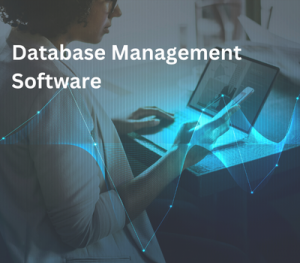
PostgreSQL vs. MySQL: The Data Debate

When it comes to data, there is no shortage of options. Whether you’re looking for a traditional relational database or a more modern NoSQL solution, the market has plenty of choices. But when it comes to traditional relational databases, two stand out from the pack: PostgreSQL and MySQL. In this blog we will look at the debate between PostgreSQL vs. MySQL.
While they both have their advantages and disadvantages, there are some distinct differences between the two. In this article, we’ll dive into how these databases compare in terms of performance, scalability, security, as well as some of their unique features. Finally, we’ll discuss why Astera Data Pipeline Builder is the ultimate tool for managing your data regardless of which database you decide to use.
What is PostgreSQL?
PostgreSQL is an open-source database system that offers extensive data model flexibility. It allows users to have greater control when designing their data model for complex queries. With support for custom data types and the ability to implement multiple inheritance among tables, PostgreSQL enables users to structure and organize their data in a highly customizable manner.
This flexibility is particularly beneficial for applications that require intricate data relationships and structures. Additionally, PostgreSQL places a strong emphasis on data security, providing fine-grained user access control and built-in encryption for secure data transfer.
What is MySQL?
MySQL, also an open-source database system, excels in performance optimization and scalability. While it may have somewhat less data model flexibility compared to PostgreSQL, MySQL compensates with its robust performance optimization capabilities. It offers a wide range of tools and techniques to enhance query performance, making it an excellent choice for applications that prioritize speed and scalability.
MySQL’s scalability is further enhanced by its support for horizontal scaling through techniques like sharding. Additionally, MySQL boasts an extensive library of extensions, enabling users to extend its functionality and tailor it to their specific needs. While MySQL may not place as much emphasis on data security as PostgreSQL, it offers strong scalability and flexibility for high-scale applications.
Comparing PostgreSQL vs. MySQL

PostgreSQL is an Object-Relational Database Management System (ORDBMS) that supports complex data types and offers efficient query optimization. It excels in handling diverse data formats like arrays, hstore, and JSON. However, managing PostgreSQL becomes more complex as data volume and complexity increases, requiring tuning for optimal performance.
MySQL is a Relational Database Management System (RDBMS) known for its simplicity and ease of use. It is favored for beginners and simpler data environments. However, it may struggle with complex queries or large datasets, requiring additional tuning for optimal performance. Factors such as hardware, indexing, and workload impact both PostgreSQL and MySQL performance.
When it comes to database management systems (DBMSs), PostgreSQL and MySQL are two of the most popular open-source options. With both having their respective advantages and disadvantages, it can be difficult to decide which DBMS is the right fit for your project.
Performance and Scalability
Performance and scalability are critical factors when choosing a database, especially for high-traffic applications. PostgreSQL and MySQL handle performance optimization differently, with distinct strengths depending on workload types.
PostgreSQL Performance:
PostgreSQL is designed for complex queries and analytical workloads. Its advanced query optimizer, support for parallel query execution, and indexing options (such as BRIN, GIN, and GiST indexes) enable efficient data retrieval, even with large datasets. PostgreSQL 16 has introduced enhancements like improved logical replication and parallel execution, further boosting performance for transactional and analytical processing.
MySQL Performance:
MySQL is optimized for read-heavy workloads and high-speed transactions, making it a preferred choice for web applications and CMS platforms. It leverages features like the InnoDB storage engine for ACID compliance and efficient row-level locking. MySQL 8 has introduced better indexing, JSON improvements, and performance enhancements for high-concurrency workloads, improving its scalability for modern applications.
Scalability Considerations:
- PostgreSQL scales vertically by leveraging powerful hardware and supports horizontal scaling using replication and sharding techniques. It excels in distributed architectures where complex querying is required.
- MySQL is often used with read replicas for horizontal scaling, making it suitable for applications with a high volume of concurrent read operations. Its Group Replication and InnoDB Cluster features provide high availability and fault tolerance.
Both databases have robust scaling mechanisms, but PostgreSQL is often preferred for enterprise applications requiring complex data processing, while MySQL is favored for high-speed, transactional applications with simpler queries.
PostgreSQL vs. MySQL at a Glance
PostgreSQL vs. MySQL: The Critical Differences
When it comes to PostgreSQL vs MySQL, understanding the critical differences between them is essential. Although both are highly reliable and performant, there are some key distinctions that may make one more suitable than the other for specific use cases.
Open-source vs Proprietary
PostgreSQL is open source while MySQL is proprietary software owned by Oracle. With an open-source license, Postgres can be modified freely with the source code available in public repositories. On the other hand, since MySQL is a proprietary software, it cannot be freely downloaded, used, or modified.
Database Functions
PostgreSQL comes with built-in support for data types like Arrays, which allows you to store multiple values inside a single column. MySQL does not have this capability and therefore requires more complex solutions to achieve this task. Additionally, Postgres also supports user-defined functions and advanced data processing features such as window functions.
Accessibility
PostgreSQL can be accessed from nearly any platform or programming language via its extensive library of APIs. In contrast, MySQL has limited server-side programming capabilities and does not have as many libraries for access from other platforms and languages as Postgres does. However, these restrictions do not impact usability if accessing the database through a graphical user interface (GUI).
PostgreSQL vs. MySQL by Use Case
PostgreSQL and MySQL are both well-suited to different use cases. Let’s look at some of the common ones.
PostgreSQL:
PostgreSQL is used in a variety of situations where data integrity, support for complex SQL queries, and scalability are crucial. It is ideal for applications like financial services, customer relationship management systems, and web applications requiring advanced geographical features.
Most common uses for PostgreSQL include:
- Web and mobile applications that need to handle large datasets, such as e-commerce websites, content management systems (CMSs), and data-intensive applications
- Scientific computing applications that use advanced analytics and big data
- Applications that require high availability, integrity, data security, scalability, performance, and reliability
MySQL:
MySQL is typically relied upon for web-based applications such as content management systems, ecommerce websites and forums. Its easy setup makes it a great choice when speed is important. Additionally, its cost efficiency compared to PostgreSQL makes it popular among smaller businesses and startups.
Most common uses for MySQL include:
- Traditional web applications like CMSs or e-commerce websites with a lower number of records
- Applications or websites with a smaller user base that don’t require intensive calculations or frequent updates
- High-traffic websites or web services with simple requirements
No matter which database you ultimately choose for your project, Astera Centerprise provides access to both PostgreSQL and MySQL—in addition to numerous other providers—so you can quickly connect, configure, and load your data into the desired destination in minutes without requiring any coding expertise whatsoever.
How Astera Data Pipeline Builder Connects to PostgreSQL and MySQL
Astera Data Pipeline Builder offers a comprehensive solution for working with both PostgreSQL and MySQL databases. Whether you need to build an application or create a complete business intelligence solution, ADPB provides all the necessary tools to help you get the job done.
One of the key advantages of using Astera Data Pipeline Builder is its ability to access both PostgreSQL and MySQL databases, as well as other data sources, through a single ETL tool. This not only streamlines the process of accessing data from multiple sources, but also ensures that data remains secure at all times. Additionally, the solution offers pre-built connectors that enable users to quickly access vital information from their databases with just a few clicks, which can save a significant amount of time and effort in the data integration process.
Options Available
Here are several options which Astera Data Pipeline Builder offers for connecting to PostgreSQL and MySQL databases, each providing different levels of functionality and control over the data:
- Native Connector – provides single-click connectivity to both SQL-based databases. It also allows users to import table structure, columns, keys, and triggers. This allows you to quickly configure any database as needed.
- ODBC/JDBC Connector – provides an even greater level of flexibility by allowing users to connect directly with PostgreSQL and MySQL databases using ODBC or JDBC drivers. This allows users to access more complex data structures like views, stored procedures, and user-defined functions.
- Drivers & Scripts Connector – the most powerful option for connecting with either SQL database type is through the Drivers & Scripts connector option in Astera Centerprise. This lets users create custom scripts for forming complex SQL queries for business operations such as logging and auditing queries, stored procedure calls which require more authentication or permission from the DBMS level etc.
All these connector options ensure that ADPB gives its customers the power of choice in deciding how best to use their data sources for their business needs with maximum efficiency.
PostgreSQL vs. MySQL: Concluding Thoughts
To sum up, PostgreSQL and MySQL are two popular database solutions for organizations today. Depending on your use case, one database might be better than the other. Astera Data Pipeline Builder’s built-in data connectors and providers can provide access to both PostgreSQL and MySQL, as well as other connectors and data providers. With Astera Data Pipeline Builder, you can effortlessly analyze data from multiple data sources, unlocking powerful insights from your data in a time-efficient manner.
 Astera AI Agent Builder - First Look Coming Soon!
Astera AI Agent Builder - First Look Coming Soon!


